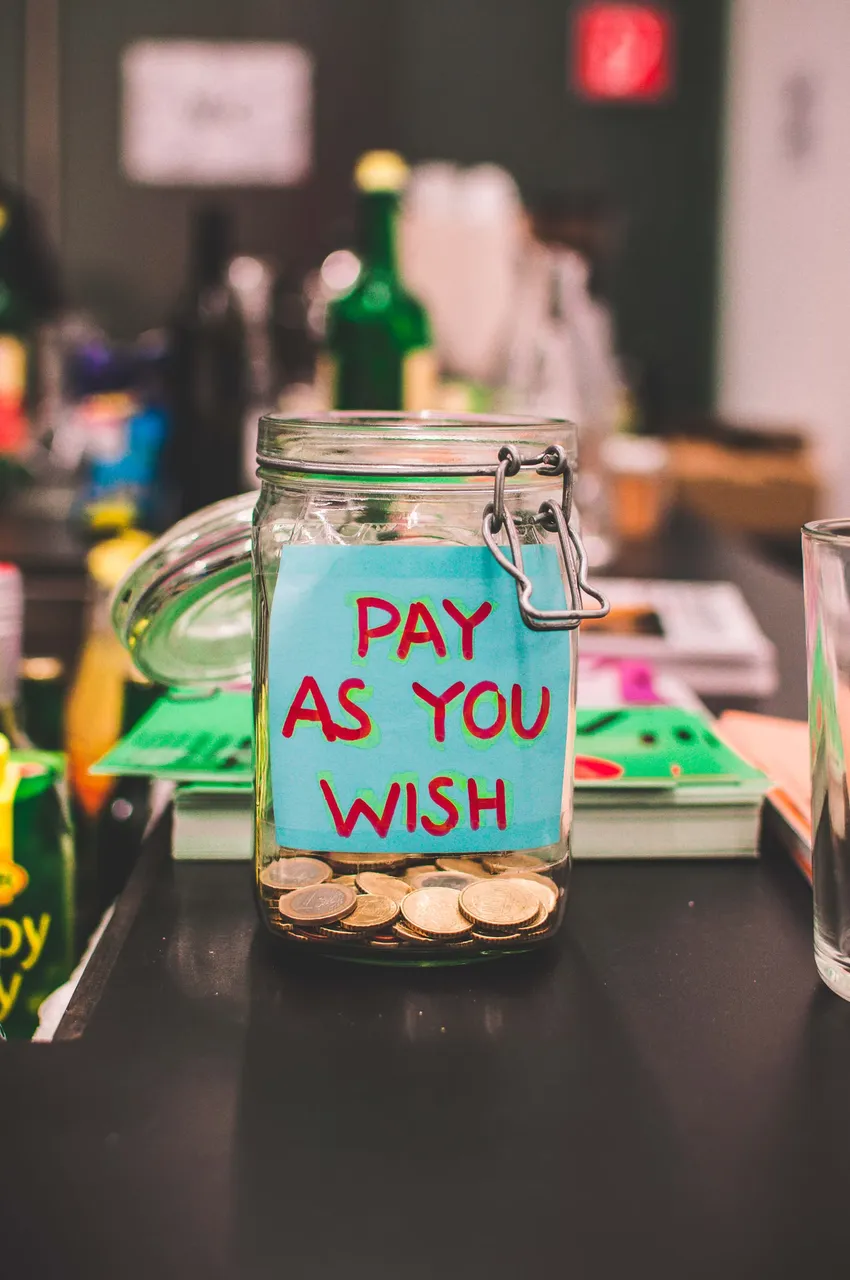Talking about money has long been considered a bit of a taboo in most societies. Generally, it was associated with being tacky and in poor taste, and more educated people refrained from talking finance, even with close friends or even sometimes family. Conversations of this nature tend to make people feel uncomfortable, and embarrassed, though it's not, as one might expect, that they're in a bad financial situation necessarily. Often, people will avoid financial topics if they're doing well, but also if they're somewhere in the middle of the pay scale.
 Photo by Aneta Pawlik on Unsplash
Photo by Aneta Pawlik on UnsplashSo...why the secrecy?
As someone who's always had trouble touching upon financial topics, I was curious to understand why that is. As one article in Forbes Magazine interestingly points out, many people's reluctance with money is an inner fear of revealing an intellectual lack. Let's face it - many of us, while familiar with basic concepts such as investing, are not financial gurus, and admit ourselves the existence of lacks in our knowledge on this topic. So it could be that, in some cases, we avoid talking money-related issues so as to maintain our apparent cool.
But that doesn't explain it all. For instance, years ago, when I was working as a babysitter, the family I was working for always offered me the chance of setting a price. But I simply couldn't, always saying whatever they wanted to give me was fine. In one instance, I remember, I felt the pay was a bit small, but couldn't bring myself to say so (even though the parents were lovely people). Later, the father texted me to say his wife had noticed from my expression the discontent, and could he send me a bit more money to make up for it?
In more recent years, working as a freelancer, I've had to man up, and talk about money more openly with potential employers. Earlier this year, when I decided to raise my prices a little, I was mortified at having to inform my clients of this, even though the new prices were very reasonable. So clearly, this wasn't for fear of some intellectual lack, or misunderstanding. Personally, when it comes to asking for money directly, I feel it's a feeling of inadequacy that makes us keep our mouths shut.
In asking for more money, I'm basically saying I'm worth this amount - but what if that assumption is mistaken? What if I find out both that I'm not worth as much as I thought, and end up making a fool of myself in the process? There's definitely an aspect of social terror there. One that's probably rooted in some self-worth issues. Obviously, it's not a good idea to think too highly of yourself in a professional setting, but it's probably even worse to think too little of yourself. For instance, I find that it's easy to make potential employers experience a little FOMO when you come across as a desirable service, because what if you really are that good, and they miss out?
As a freelancer, I've found it's important to be ballsy, and that includes negotiating money.
So there's definitely that side, and lastly, there's the social aspect. The taboo around talking money with friends or family, in non-professional settings. I was talking to my cousin about her tutoring work, and asked her "so how much are they paying you?". She was shocked at the audacity, even though, having worked as a tutor myself, I don't feel the question was inappropriate.
So why does that happen?
According to Forbes, it's fear of comparison, the knowledge that once you pin-point a figure, be it high or low, people will judge you and compare to their own financial situation, or that of others in your circle. Obviously, if you earn too much you'll come across as conceited and privileged. If you earn too little, you'll be pitiful, and inappropriate. Lastly, if you earn an average salary, you'll be, worst of all, average. There'll be nothing remarkable to point out about you, and sometimes, I feel, we fear that most of all in our social interactions.
But what are the consequences of this taboo? And what happens when you break it?
This constant fear of talking money obviously creates very strong complexes in the way you function and interact with the world. Many people in previous generations were socially stunted by this inability to touch on money in a conversation.
"This taboo keeps people from finding money's proper place in their lives. It keeps them from balancing their financial needs with other needs; such as love, family, self-expression, self-esteem, meaningful work, and physical or emotional health," says a study from 1999.

Photo by Fabian Blank on Unsplash
Seems fair to me. The sooner you accept that money is a big issue in your life, the sooner you'll learn how to deal with that correctly, without assuming this makes you tacky or callous.
On the other hand, talking about money can indeed have negative effects. After all, it didn't become taboo for no reason. For instance, I've a good friend who's unemployed at the moment. On the other hand, her partner earns extremely well, which leads to discontent between them, as she sort of assumes it's his duty to pay for things (something I don't agree with). Obviously, this sort of situation depends on the individual, but money talk will sooner or later give rise to conflict, most likely.
Why should you go to the fancy restaurant that so-and-so suggested, when so-and-so earns so well?
or
Of course X doesn't want to take that trip to France, since he's a lazy bum who doesn't work and can't afford things. He's dragging our entire circle down.
Unfortunately, it seems that you either need to have a very open mind, or need to be friendly with people of a similar financial status. Personally, I'm trying to rectify this by being more open about money, but we'll see if that's good or bad, I guess.
